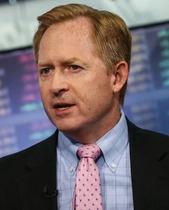
Inflation
Inflation is a quantitative measure of the rate at which the average price level of selected goods and services in an economy increases over a period of time. As it is characterized by an increase in the cost of living as the prices of goods and services rise, it also reduces the purchasing power of each unit of currency, demand, supply, and expectations. Inflation hits at every angle of the economy: food prices go up, transportation prices increases, gas prices rise, and the cost of various other foods and services skyrocket over time. Ideally, an optimum level of inflation is required to promote spending to a certain extent instead of saving, thereby nurturing economic growth.
Experts
Adam Posen
Alan Greenspan
Alex Pollock
Allan Meltzer
Anna Wong
Ben Bernanke
Ben Breitholtz
Brian Weinstein
David Kotok
Edward Chancellor
Harry Dent
JP Marra
James Davolos
Jason Furman
Jeffrey Sachs
Jim Rickards
Kenneth Rogoff
Kevin Muir
Mark Valek
Martin Wolf
Mary Childs
Mervyn King
Michael Ashton
Michelle Meyer
Murray Gunn
Neil Shearing
Russell Lamberti
Simon Potter
Skanda Amarnath
Steven Bregman
- One of the best ways to predict inflation is to look at workforce growth (2.5 year lag)
- Before central banks, inflation was relatively mild
- House Prices in the US only rose 12% in the 19th century
- House Prices in the US only rose 50% from 1800 to 1913 (When US Central Bank Formed)
- Previously most countries monetary policy operated on the Gold Standad
- Inflation is hidden tax on those who accumulate assets: savers, retirees, annuitants and insurance policy holders
- Monetarists and Austrain Economists believe that Central Bank money printing (increasing money supply) causes inflatino
- Population Growth (especially working age) - more demand for currency in the economy
- Working age population consume a lot
- Having kids also requires significant consumption
- Non-Working age are huge consumers (without any production)
- Some believe that Inflation is now always driven by the money supply:
- Money supply is a requirement, but not the cause
- It's driven by demographics and behavioral psychology
- Thus - the Fed can't really change inflation
Inflation & Specialization = Good Thing (Harry Dent)
- Specialization of Labor = More Transactions / Outsourcing = More Need for $ = Inflation
- We have to pay other people more money to do something than we could do it for ourselves
- Specialization of Labor = Better Efficiency = Better Lifestyles = Good
- Therefore: Inflation = Good
- Natural Inflation is a great economic indicator and sign of progress
- However, unnatural inflation can be bad:
- Massive Central Bank QE & Liquidly injections are like a drug
- Compared to someone living remotely by themselves. They do everything themself and have non need for currency:
- Evidence: Although there has been massive "inflation" in the US since 1900, inflation-adjusted wages and living standards have gone up far faster
- inflation was needed to support the growth in population, urbanization, longetivity, specialization, etc.





























